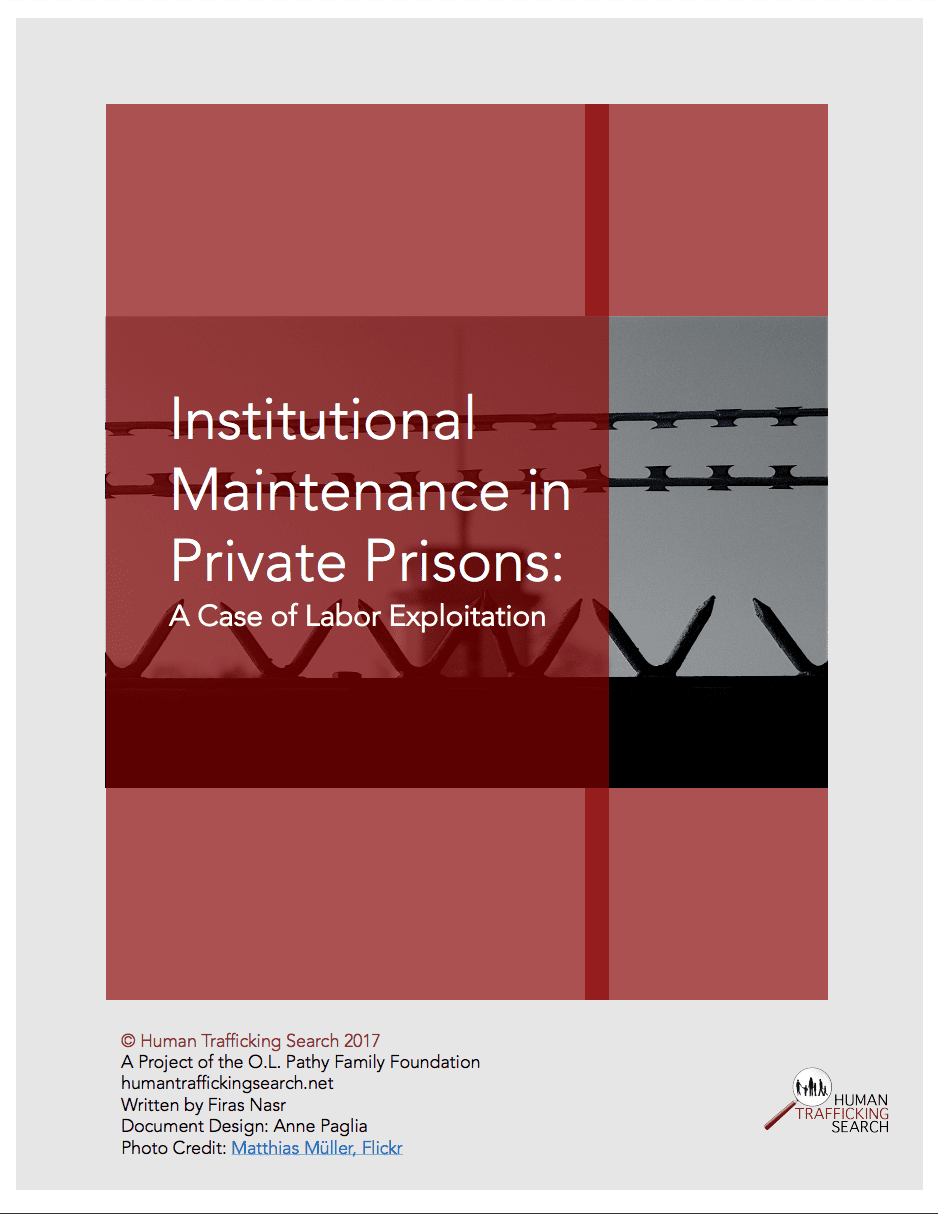
Action Required: Recommendations for Stakeholders Against Labor Exploitation in Private Prisons
This is the third blog in a series on labor exploitation in private prisons. Click here to read the first and second.
Human Trafficking Search recently published a study on the use of penal labor in private prisons, finding that private prisons effectively exploit inmates for labor, particularly for institutional maintenance. Institutional maintenance is work such as food service, groundskeeping, and housekeeping that contributes to the day-to-day operation of the institution. In any other corporation, workers would be required by law to be paid at least minimum wage ($7.25/hour) for their work. However, according the study, private prisons are only required to pay inmates $0.12-0.40 per hour.
The Federal Bureau of Prisons and other stakeholders must take bold steps to eradicate labor exploitation and prevent forced labor in private prisons. Below are a series of recommendations for the FBOP, State departments of corrections, anti-trafficking practitioners, students, and businesses and private investors.
Federal Bureau of Prisons
- The FBOP must mandate that private corrections corporations pay inmates minimum wage for the various occupations worked to maintain the institution.
- The FBOP should adjust the pay grades to reflect current income inflation (wages have not been changed since October 1990). The FBOP should also adjust maintenance pay to reflect these changes.
- The FBOP should revise required working conditions to eliminate the possibility of forced labor in private facilities. This revision should apply to public facilities as well.
State Departments of Corrections
- States contracting corporations for corrections must mandate that they pay inmates minimum wage for institutional maintenance.
- States should consider eliminating contracts with corrections corporations, as data, both from independent studies and the FBOP, overwhelmingly indicate that privatizing corrections decreases the quality of services for inmates and does not decrease cost.
Anti-Trafficking Practitioners
- Practitioners should demand action by the FBOP and state departments of corrections to increase inmate salaries for institutional maintenance jobs to a prevailing wage.
- Practitioners need to advocate ending the use of contracted facilities.
- The US State Department Trafficking in Persons (TIP) Report needs to include inmate labor in private prisons, both in the US and around the world, when determining country rankings in future years.
- Practitioners should conduct additional research to examine the use of penal labor by private prisons for institutional maintenance in various states across the country.
- Practitioners must consider policy reforms regarding state contracted facilities when advocating for laws protecting exploited, forced or trafficked laborers.
Students
- Students should conduct research on the prison industrial complex and the private prison industry to learn about the issue and share it with their peers.
- Students need to demand that their colleges and universities divest from the prison industrial complex and private prison industry.
- Students who are part of anti-trafficking organizations must integrate advocacy and event-planning around prison reform and ethical labor practices in private (and public) facilities.
Private Companies and Investors
- Companies that may be concerned about the ethical or public relations implications of having prison labor in their supply chains (i.e. via goods that are manufactured in prisons or by contractors using prison labor) should find alternatives to prison labor, or at least ensure that their suppliers comply with minimum standards in terms of wages and working conditions for prison labor.
- Investors need to divest from the private prison industry and other industries that fuel the prison industrial complex.
To read our full study, click here.
